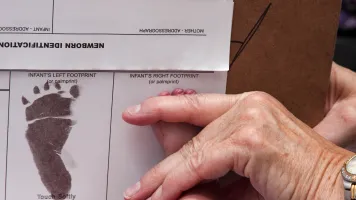The COVID-19 pandemic has shown in the starkest possible terms how accurate and timely data are critical both for immediate response and managing the wide-ranging socio-economic effects that will come in its wake. As the world scrambles to understand and control the virus, social distancing requirements are interrupting statistical offices’ traditional methods of face-to-face data collection. Under these circumstances, administrative data is more important than ever as an alternative source for producing more timely statistics.
While the urgency to use administrative data sources is more acute, the need is not new. Governments around the world have been working for many years to make better use of administrative records for statistical purposes, and they have been intensifying these efforts recently to respond to the data demands of the Sustainable Development Goals (SDGs).
In response to a strong demand from our country partners to do more and to learn from others’ experiences, the Global Partnership for Sustainable Development Data, Cepei, and the Inter-American Development Bank organized a peer exchange with 11 governments from Latin America, the Caribbean, and Africa to share good practices on administrative data on November 5-7, 2019 hosted by Mexico’s Instituto Nacional de Estadística y Geografía/National Institute of Statistics and Geography (INEGI). We’re pleased to share the report, which summarizes the learnings and highlights many practical examples that were shared.
Who participated?
The event brought together 48 participants from national statistical offices; ministries, departments, and agencies; multilateral organizations; international organizations; and the private sector. Roughly three representatives from each of the governments of Belize, Colombia, Costa Rica, Ecuador, Ghana, Kenya, Mexico, Paraguay, Senegal, Sierra Leone, and Tanzania participated, one coming from the national statistical office and two from other parts of government that produce administrative data such as ministries of health, education, social protection, and births and deaths registries.
Learning on governance, data quality and innovation
Ahead of the peer exchange, a pre-event survey captured participants’ needs, challenges, and the practices they wanted to share, which then shaped the discussions in the room. Participants prioritized 1) the formal and informal governance mechanisms that foster cross-government collaboration and data sharing; 2) various aspects of data quality; and 3) innovation and the use of technology.
Governance and data sharing
Discussions on this topic revealed that although most countries have laws that require data sharing with a country’s national statistical office, it does not happen in practice. The lack of trust among institutions that produce or use administrative data often results in limited data sharing. As such, a legal framework is necessary but insufficient. Countries shared experience around the different approaches they had taken to build trusted relationships across government, which ranged from the use of more formal mechanisms like memoranda of understanding to more informal personal relationships and crafting agreements based on mutual benefit.
Data Quality
Data quality is viewed as a significant impediment to improving the reliability and use of administrative records for statistical purposes and decision-making. Countries shared their good practices around standardizing definitions and classifications, and quality assurance. Countries like Paraguay and Colombia have dedicated units within their statistical offices that provide quality guidelines on administrative data. Participants were also interested to learn about UNICEF’s administrative data maturity model, which situates administrative data within the broader national data landscape and helps government officials develop a common system that prioritizes administrative data investments and needs across sectors. Participants also shared their solutions to strengthen data quality, including promoting interoperability, increasing budget allocation, strengthening capacity, improving citizen awareness, as well as developing digital systems for data sharing.
Innovation
Discussion during this session allowed countries to share examples where they are applying innovative approaches to strengthen administrative data and the benefits they have seen. The Kenyan Ministry of Labour and Social Protection has digitized its social assistance systems to help target and track beneficiaries, identify gaps and reduce duplication, process online payments, and capture citizen feedback. The government of Ecuador is piloting an innovative way of using administrative data for census in Galapagos using data from the civil registry, the Ministry of Education, and the electricity ministry. These efforts have the potential to reduce costs, improve data quality, and allows the country to achieve its goal of moving to a register-based census by 2030.
Strengthening administrative data now and for the future
The peer exchange provided structured networking around participants’ interests by pairing participants with colleagues they wanted to learn from. Through these discussions, participants made commitments to share methodological documents, regulations, and guidelines. They also developed plans for cross-country sharing on certain themes (e.g., register-based census in LATAM) and country-to-country knowledge exchanges, which the Global Partnership and Cepei are now helping them to take forward.
Besides the immediate benefit for the peer exchange participants, our hope is that these collective learnings and good practices may provide some useful reference points for the broader community. As always, the Global Partnership stands ready to provide additional information on any of the examples covered in the report.
One of the strongest pieces of feedback we received from participants was how valuable it was to see that their counterparts in other countries and regions are grappling with similar challenges, and to be able to compare the different approaches they have taken.
As all governments confront the COVID-19 situation, we will continue to foster peer learning and work with partners to make much-needed resources available. The need to support our partners on strengthening administrative data is needed now more than ever.
We’re proud to be collaborating with the UN Statistics Division and Open Data Watch on a COVID-19 Response website aimed at national statistical offices. We also announced a collaboration between the Global Partnership and the UN Economic Commission for Africa, to strengthen data ecosystems in Africa in the face of COVID-19. We are also exploring ways to facilitate remote support for countries to strengthen their capability to use administrative data sources for statistics for immediate COVID-19 questions and to build stronger systems to support SDG implementation and monitoring for the next decade.



